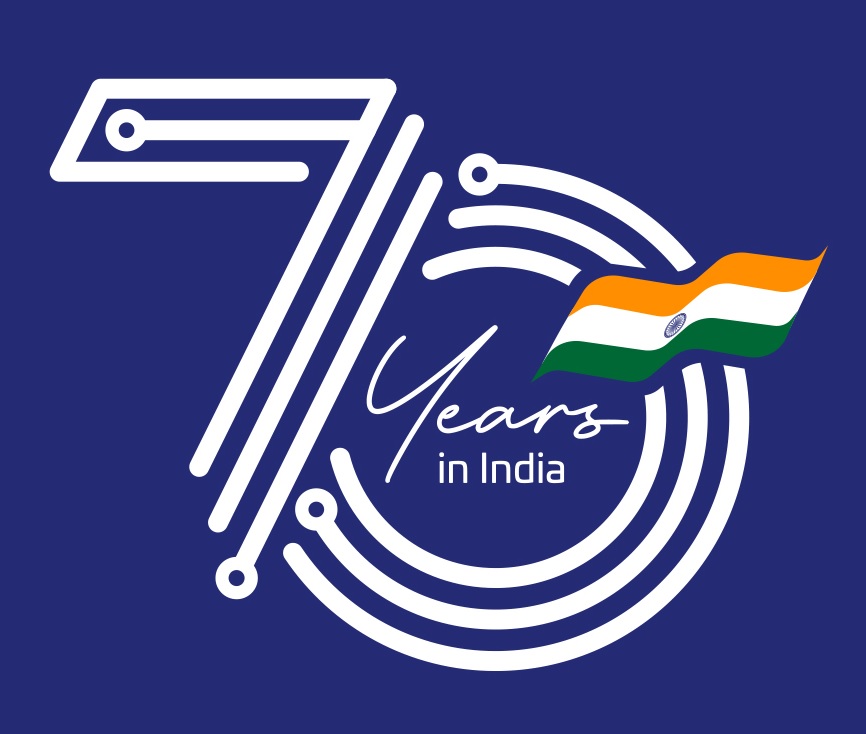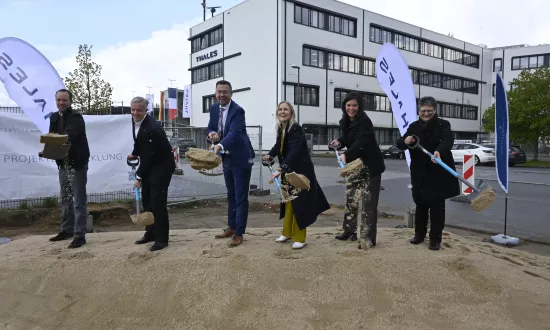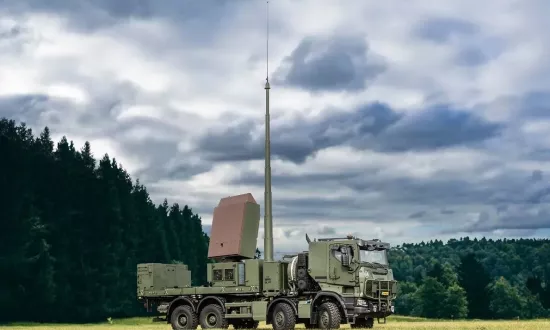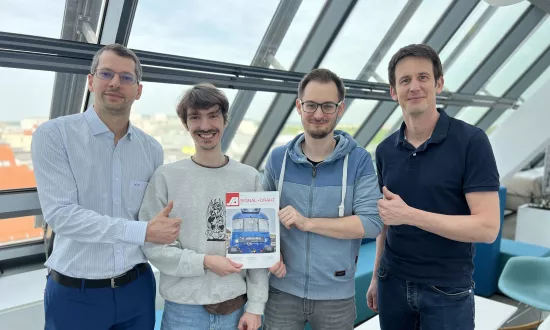Thales in India: an enduring partnership
Indian Prime Minister Narendra Modi’s visit to France this week is a timely reminder of the strong links that Thales has forged with India over the 70 years that the company has been present in the country, making it a trusted partner of India’s growth, be it in industry, innovation or the country’s digital transformation.

Since the very beginning, the combination of Thales’s technological capabilities and its local presence has made the Group a key player in India’s growth story, with in-country expertise provided by local teams and enterprise collaborations across India, in manufacturing, critical systems and services.
Leveraging its global expertise, Thales has been proudly supporting the modernisation efforts of the Indian armed forces, as well as the expansion of Indian industry and technology, with the aim of building a future that all can trust.
Aatmanirbhar Bharat
In this special year, Thales is moving forward on its “Make in India for India and for the world” roadmap, as part of the Indian government’s Aatmanirbhar Bharat1 vision, developing its industrial footprint in India in line with the Indian government’s policy, notably as regards the development of the country’s defence capabilities.
At Thales, helping Indian industry to play a greater role in world markets has been a key part of the Group’s strategy since it started operations in the country in 1953. Thales’s cutting-edge technologies span a broad range of both military and civil sectors, from the electronic warfare suite aboard the Rafale and critical avionics to cybersecurity and biometrics.
As we celebrate 70 years in India, Thales is eager to pursue its long-standing commitment to partner with India in its big ambitions including the Aatmanirbhar Bharat vision. We are fully committed and mobilised to continue supporting the modernisation and indigenisation efforts that are underway in the Indian aerospace and defence sector.
Ashish Saraf, Vice-President and Thales Country Director in India.
“Make in India” to accelerate growth
Strengthening collaborations through local partnerships means developing more products and creating more jobs, resulting in increased growth. In addition, Thales has been reinforcing local engineering R&D capabilities through its competence centres in Noida and Bangalore.
Working today with 75 suppliers, Thales has generated more than 1900 indirect jobs in India, and is looking to expand its network of trusted partners and suppliers in the country.
Accompanying India’s digital transformation
From people to enterprise security and the Internet of things, Thales’s technologies and services are providing Indian enterprises and organisations with secure digital services for millions of individuals and their transactions. These include data protection solutions, biometric products, banking cards, passport readers, secure smartcard-based driving license and e-vehicle registration cards.
Looking to the future: partnerships for innovation
Thales is also committed to supporting research and developing innovation at India’s leading educational establishments. The most recent example, in April 2022, was the signature of a Memorandum of Understanding (MoU) with the Central Manufacturing Technology Institute (CMTI) of India in the field of Open Hardware. Similar partnerships have been with formed with IIIT Delhi in July 2021, and with the Indian Institute of Technology (IIT) in Madras, Delhi, and Bombay, as well as the Indian Institute of Science in Bangalore, notably for jointly supervised PhD fellowship programmes.
A vast recruitment programme
Thanks to its growing local engineering capability, Thales and its joint ventures now employ more than 2,000 people in India, including 1400 engineers in its two global Engineering Competence Centres (ECCs), located in Bangalore and Noida. The organisation is growing its presence in the country by continuing to hire and develop more talent in high-tech roles, recruiting hundreds of new employees, primarily hardware engineers, software engineers, systems engineers and experts in digital technologies, especially cybersecurity.
1 Aatmanirbhar Bharat can be translated as 'self-reliant India'. It is a phrase used and popularised by the Prime Minister Modi and his government, with regard to the country's economic development, and encompasses the government's plans for India to play a larger role in the world economy, and for it to become more efficient, competitive and resilient.


